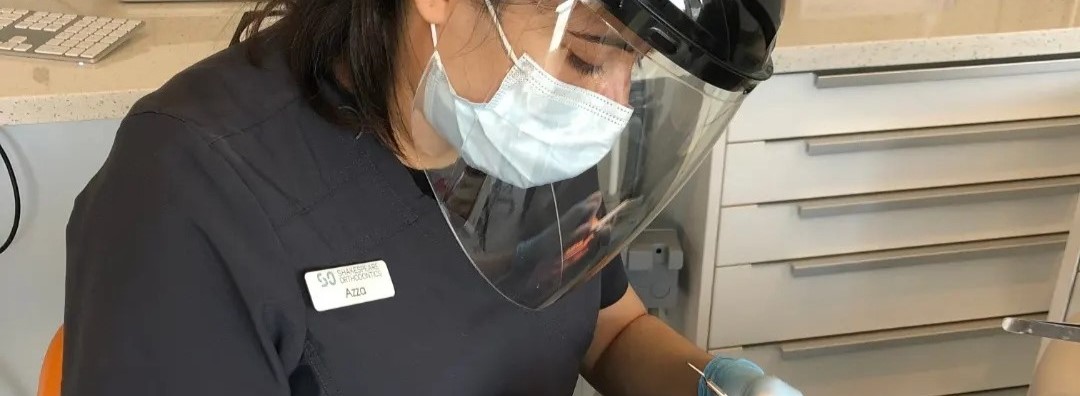Caring for braces is an important part of the orthodontic journey: The better care taken with braces, the more comfortable they will be, the more teeth will move as planned and the quicker they will be coming off.
Braces Information:
- Brackets are placed on with a special glue that is set (cured) using a specific light. The glue can take up to 72 hours to set…so, for the next three days, soft food is recommended e.g. soup, yoghurt, pasta/noodles, pies etc.
Orthodontist Tips from the North Shore: How to Tell if You Need Braces
Brushing and Flossing:
- For braces to work, the teeth and gums should be clean.
- A complimentary starter pack with oral hygiene aids (interdental brushes and a toothbrush) is given at the “bond-up” appointment to get you started on good oral hygiene practices.
- Use a toothbrush with a soft head and a toothpaste with fluoride.
- Super-floss can be used for flossing with braces. Be gentle with the floss. Thread it carefully between the tooth and the braces’ wire, then work it slowly back and forth between the teeth and braces.
- If oral hygiene is not up to a high standard, you are at high risk of developing decay and having treatment stopped early to avoid long-term issues. Furthermore, when teeth are not being cleaned properly, gum disease arises. Gum disease slows down tooth movement – causing treatment to take longer than expected.
Braces vs Invisalign: Understanding Your Child’s Orthodontic Options
Foods to Avoid:
- Throughout your time with braces, a change of diet is necessary. A good rule of thumb is to avoid any sticky, chewy or hard foods.
- Eating foods that are hard, chewy, sticky or that require biting hard directly onto the front teeth (e.g. apples, stone fruit, carrots, corn on the cob, pork crackling and lamb ribs) can cause the braces to break. Sticky foods, such as caramels or gummy candy, are likely to get stuck.
- Crunchy foods such as muesli bars and popcorn can also get lodged in the braces or can cause them to snap when a bite is taken.
- Patients who are nail-biters or pen-chewers can damage their braces readily. Crunching down on other hard objects, such as ice, can also be problematic.
- Taking care of teeth and gums becomes extra important when wearing braces, and caring for them means taking the time to brush and floss regularly: regularly rinse with water during the day, brush teeth for 3-4 minutes (morning and night) and floss nightly.
- Placing braces on the teeth is a relatively comfortable procedure. However, the following 3-5 days can be uncomfortable as the ligaments around the teeth stretch. Depending on pain threshold, we recommend taking Paracetamol regularly during those 3-5 days to ease any discomfort. Ibuprofen can also be used for pain relief if the former is not effective on its own. Avoid extra hot foods for these days as cooler foods will often help soothe the discomfort.
Ten Benefits of Early Orthodontic Treatment for Children in Auckland
Breakages of Braces:
- Breakages of braces can hold treatment up. It can also reverse some of the tooth movements made during treatment, meaning braces are on for substantially longer than needed.
- In the first two weeks of treatment if an emergency appointment is needed it will be free of charge to give new patients time to adjust to their braces. Please refer to your treatment plan for the emergency fee charges. For child patients, we recommend this charge be paid using pocket money or from doing chores around the house, in order to give them an appreciation of how much the parents have spent on the braces.
- If anything is broken with the braces, we ask that a photo be taken and sent to us in an email before the next scheduled appointment, so that we are able to assess whether we need to resolve the issue earlier than the next scheduled appointment.
- In some cases, when teeth move, the wire can emerge from the very back bracket which can cause discomfort. Please call us if this is the case, and we will guide through options of resolving this issue. In the meantime, place wax in the area of discomfort.
- As teeth move, patients can sometimes feel the teeth becoming slightly mobile – although a strange feeling, this is very normal and will settle over time once the teeth are moved into more stable positions.
- If the you play any contact sport (e.g. rugby, hockey etc.), wear a mouthguard as it will help protect the braces and teeth during these sports. It is necessary to re-shape the mouthguard every week, as teeth move fast.
Caring for Aligners: On Your Way to a Healthy Smile
Shakespeare Orthodontics: Creating a Smile You Love
4 Auckland Locations: Takapuna (North Shore), Epsom, Warkworth, Howick
Request an Appointment
Book Now
Ph: 09 2166 888
